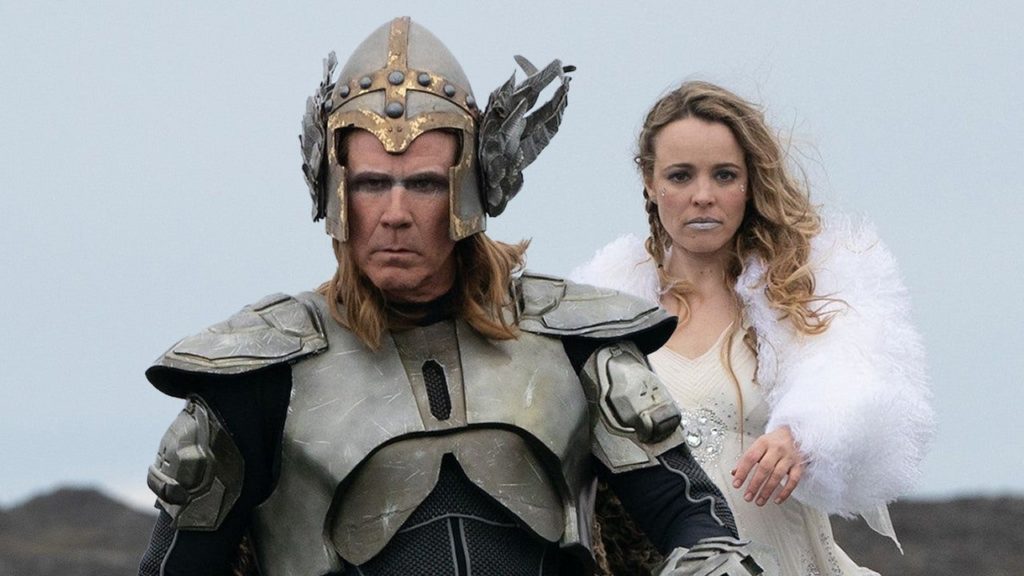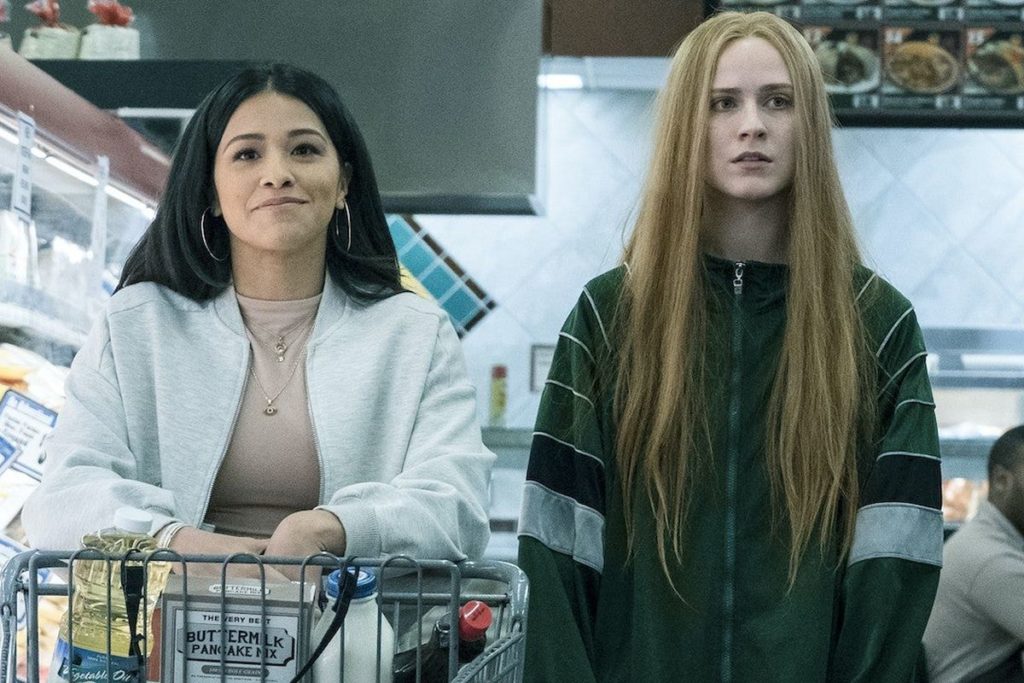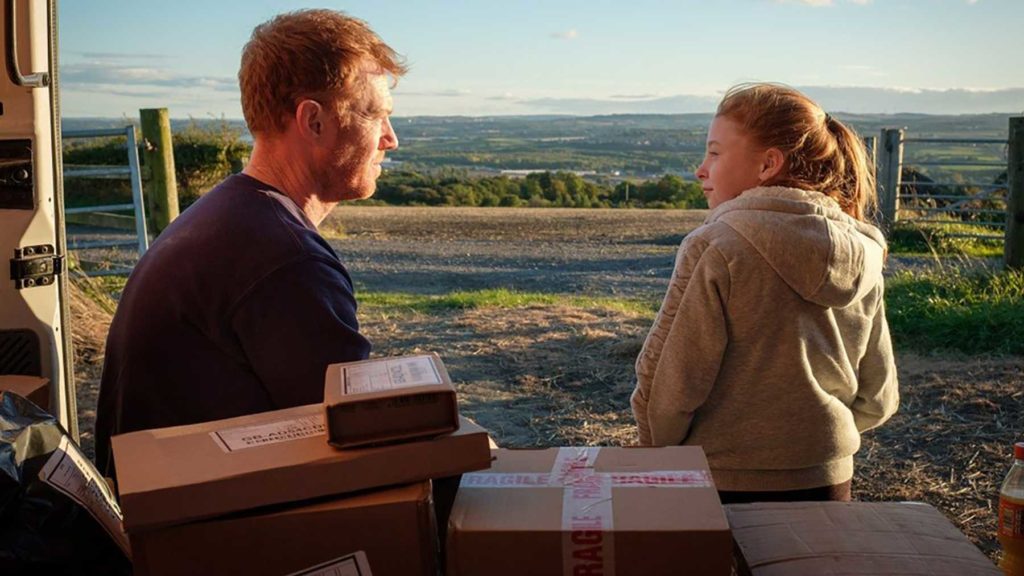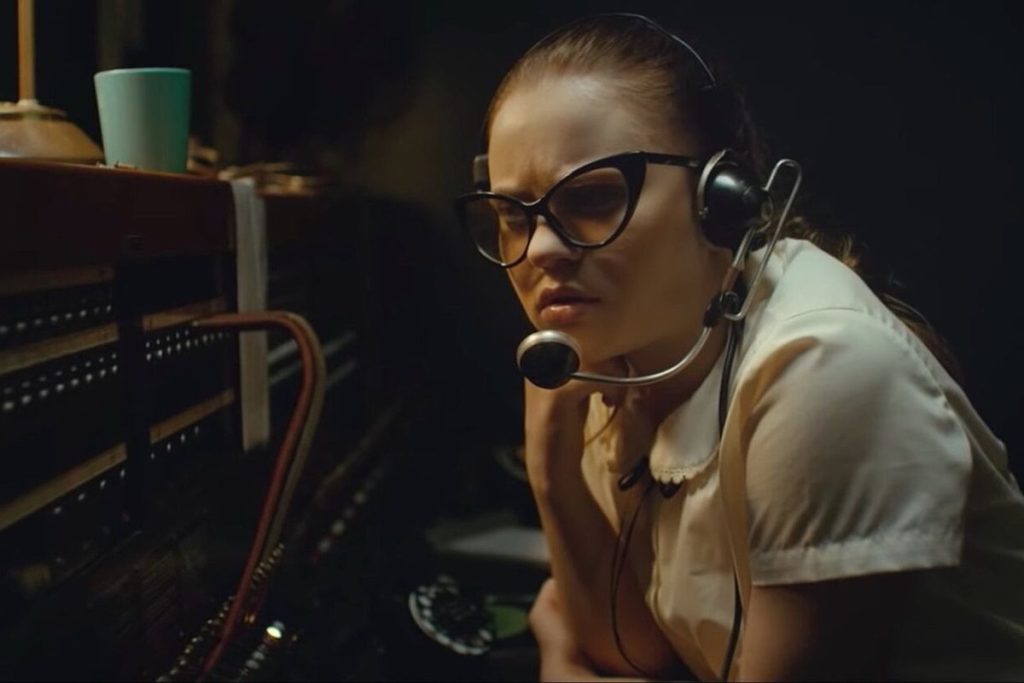
First things first: If you didn’t watch a single new film in 2020, I wouldn’t blame you. Last year, I had entire months where I found it very difficult to focus on anything new, let alone anything challenging. The allure of the Comfort Watch pulled strongly at all of us, and I was certainly not immune to the siren song of the familiar. Frankly, sometimes watching something that required full engagement felt like work for which I didn’t have the mental capacity.
Watching films entirely at home for the majority of the year presented another hurdle. I’m a devotee of the movie theater for many reasons, but I love going out to the cinema first and foremost because, when I’m in the theater, I am forced to pay attention to what’s on screen. It’s immersive, and the rules of the place forbid me from taking out my phone to absentmindedly scroll Twitter or take pictures of my cats. It’s also, to be blunt, hard as hell to keep track of new releases when everything goes straight to streaming. If I wanted to see a new movie before, all I had to do was check what was playing at the cinema—multiplex or arthouse. Finding the latest releases on streaming and VOD can feel like the Wild West in comparison. While critics like Alissa Wilkinson at Vox have been compiling wonderful weekly lists of new streaming releases since March, I still put in more effort last year to keep track of what was out and where to watch it than I ever had to before. If this is the future of movie-going, we’d all better brush up on our spreadsheet skills.
Despite these unusual circumstances, I managed to experience new films that charmed, confronted, edified, unsettled, moved, enraged, and electrified me. As people more knowledgeable than I have noted, the general lack of tentpole releases dominating the cultural landscape left room for a greater variety of films to reach a wider audience. The cultural conversation felt less mandated (very rarely this year was everyone talking about the same movie at the same time) and more passionate and idiosyncratic. Cinephiles of all stripes found room to vocally advocate for their favorite smaller new releases—which now, because of the pandemic-accelerated streaming revolution, more people than ever could actually watch. I found much value this year, even more so than usual, in recommendations shared by film critics and friends. My hope is that you might find similar value in this list. I put this list together in the spirit of sharing, and, as such, I would love for the sharing to go both ways! I encourage you to add your favorite films of the year in the comments and start a conversation.
So, without further ado, here are my 14 favorite films of 2020 (plus a guest pick by Keith), listed in alphabetical order because I avoid ranking things whenever possible.*

Another Round
The premise of this Danish film sounds like the set up for a raunchy, The Hangover-esque comedy of escalating disasters: a quartet of middle-aged men, dissatisfied with the ways they’ve settled as they’ve gotten older, decide to conduct an experiment in which they keep themselves day drunk every day of the week. They want to see if maintaining a buzz will improve their lives. What follows is a remarkably humane, non-moralistic exploration of male friendship, midlife crisis, and the role that alcohol occupies in the fabric of social life. Director Thomas Vinterberg pulls off an astonishing tonal balancing act and makes it look easy with the aid of his leading actors. Vinterberg’s frequent collaborator Mads Mikkelsen has received deserved praise for his work in the film—the movie’s final scene, all Mikkelsen’s, is sublime—but the film’s three other leading men turn in equally sensitive and fully-realized performances. / Where to watch: Another Round is available for digital rental.
The Assistant
Documentarian Kitty Green brings an observational style to her first narrative film, about a single day in the life of an executive assistant named Jane (Julia Garner) who works for a lightly-fictionalized—and never shown or named—version of Harvey Weinstein. When Jane finds potential evidence of her boss’s sexual misconduct, the abusive and complicit office culture discourages her from taking any meaningful action based on her suspicions. This quiet film depicts the crushing environment of a truly toxic workplace with devastating accuracy, but any woman who has worked an office job will recognize, to some degree, the power dynamics at play. The film takes an understated approach to the material, recognizing the way that, in real life, these power dynamics are so insidious because they are always understood but never spoken. / Where to watch: The Assistant is available to stream on Hulu or for digital rental.**
Dick Johnson Is Dead
This unconventional documentary poses the question, “How do you prepare yourself for the death of someone you love?” With Dick Johnson Is Dead, filmmaker Kirsten Johnson attempts to face the imminent loss of her elderly father by repeatedly staging and filming his death by horrific accident. If that sounds weird and maybe a little uncomfortable, that’s because it is. The film inevitably deals with heavy subject matter, as Dick’s slow decline due to Alzheimer’s disease sits at the tragic heart of the project; but Johnson, by and large, treats these “death” scenes (and the accompanying “afterlife” scenes) playfully, positioning them as surreal imaginative exercises. Ultimately, the film works as an experimental and heartfelt corrective to our cultural taboos around discussing death and as a celebration of its subject’s life. / Where to watch: Dick Johnson Is Dead is a Netflix exclusive.
Driveways
Andrew Ahn’s delicate drama knocked me out when I watched it last May. The film starts when Kathy (Hong Chau) takes her young son Cody (an outstanding Lucas Jaye) with her to clean out her sister’s house after her sister’s unexpected death. Kathy’s sister, it turns out, was a hoarder, and getting the house ready to sell will take more work than Kathy anticipated. Cody, trying to find a way to fill his time while his mom cleans, ends up befriending his new neighbor, a Korean War vet named Del (Brian Dennehy, in his final performance). Driveways deals with loss, loneliness, and alienation; but the film is mostly about the balm of finding community where you least expect to find it. This one is a must see. / Where to watch: Driveways is available for digital rental.

Eurovision Song Contest: The Story of Fire Saga
At last, a comedy! Lars (Will Ferrell) has desperately wanted to compete in the Eurovision Song Contest since he was child. Sigrit (Rachel McAdams) is less ambitious, but she makes music with Lars because she loves to sing (and because she loves Lars). Through a mounting series of mishaps, the Icelandic duo finally manages to fail their way into competing at Eurovision, where the majority of the film’s action takes place. The movie functions as more of an homage to the real Eurovision than a satire of it, and this enthusiastic and sincere appreciation of the song contest’s bombastic absurdity is the film’s greatest strength. Pop producer Savan Kotecha put together a soundtrack of ridiculously catchy, legit-sounding Eurovision-style bangers for the film; I dare you to watch it without getting at least one of the songs stuck in your head. Bonus: Dan Stevens delivers one of his best performances to date as the scene-stealing Russian contestant, Alexander Lemtov. / Where to watch: Eurovision Song Contest: The Story of Fire Saga is a Netflix exclusive.***
First Cow
In the Pacific Northwest of the 1820s, two very different men (played by John Magaro and Orion Lee) cross paths as they seek to make their fortunes on the frontier. They have no startup capital and no resources to their names, so they band together and engage in a harmless act of theft to get their business going: they clandestinely milk a rich landowner’s dairy cow every night. With the milk, they make “oily cakes” to sell in town. The oily cakes are a hit, and the men’s fortunes start to look up until the landowner starts to suspect them of dairy theft. Kelly Reichardt directs this quiet but stealthily powerful reexamination of prevailing myths about the wide-open economic opportunities of the American frontier. / Where to watch: First Cow is available for digital rental.
The Forty-Year-Old Version
Writer, director, producer, and star Radha Blank broke through in a big way at last year’s Sundance Film Festival with The Forty-Year-Old Version, her semi-autobiographical debut film. This sharp comedy follows “Radha,” a mid-career playwright, as she struggles to maintain her artistic voice and integrity in the face of market demands as well as her own fears of wasted potential. When “Radha” gets one of her plays produced, a piece about gentrification in her Harlem neighborhood, she finds herself artistically unfulfilled as she realizes what kind of script the (white) producers actually want. “Radha” starts writing raps, casually at first, until she realizes that rapping might be more personally rewarding than the play she’s working on. The film, shot in beautiful black and while, looks gorgeous, and Blank gives a charismatic, winning lead performance. The Forty-Year-Old version provides a meta-answer to “Radha’s” conundrum, standing as an assured and delightful example of what results when an artist refuses to filter her own viewpoint into something less singular and personal. / Where to watch: The Forty-Year-Old Version is a Netflix exclusive.

Kajillionaire
Multi-hyphenate artist Miranda July strikes again with Kajillionaire, her latest film. Evan Rachel Wood stars as Old Dolio, a twenty-something woman who has spent her entire life running bizarre, small-scale cons on behalf of her parents (Debra Winger and Richard Jenkins). When Old Dolio’s parents rope a charming stranger, Melaine (a sparkling Gina Rodriguez), into their scheming, Old Dolio starts to become jealous of the way they treat the newcomer. To say more would be to spoil too much. Kajillionaire operates in July’s usual whimsical, off-kilter register, but the film is far from twee. July creates a dreamscape in which to explore what it means to accept your biological family, even if you might not exactly love them, and what it feels like to discover your own found family. / Where to watch: Kajillionaire is available for digital rental.
Lovers Rock
Lovers Rock is the second installment in Steve McQueen’s Small Axe anthology of films, which focuses on the lives of West Indian immigrants in London from the 1960s to the 1980s. Some of the films in the anthology are based on historical events, while others, like Lovers Rock, focus on everyday lived experience. Lovers Rock depicts a house party, tracing the energy of the evening. That’s it. It’s simple, universal, and humming with the promise of sex; it’s complex, particular, and humming with the threat of violence. An unforgettable, euphoric sing along scene serves as the film’s centerpiece. Clocking in at just 68 minutes, Lovers Rock is a perfect little gem. / Where to watch: Lovers Rock is an Amazon Prime exclusive.
The Old Guard
Birds of Prey and The Old Guard kept swapping places on my list and in my honorable mentions. They’re both hugely entertaining, and they both play with superhero movie genre conventions in exciting ways. The Old Guard won out for two reasons. 1) I watched Gina Prince-Bythewood’s film multiple times this year, but I have yet to revisit Birds of Prey. The Old Guard has a soulful melancholy at its core that I found irresistible. I mean, any good movie about immortals has to be at least a bit moody. 2) It has my favorite on-screen kiss of the year. / Where to watch: The Old Guard is a Netflix exclusive.
Shirley
Shirley doesn’t give author Shirley Jackson the biopic treatment. Almost nothing about Shirley is factually accurate to the author’s life; instead, director Josephine Decker pays homage to the real Jackson by artfully evoking the atmosphere of her horror stories and placing a fictional Jackson (a deliciously scenery-chewing Elisabeth Moss) inside of it. When Jackson’s husband invites one of his graduate students and his wife to stay at the Jackson home, Shirley starts playing mind games with the wife. Like Moss’s Shirley, this film is wickedly smart, wildly unpredictable, and just menacing enough to keep you on edge the whole time. / Where to watch: Shirley is available to stream on Hulu or for digital rental.

Sorry We Missed You
Ken Loach’s latest takes a hard look at the social cost of the unchecked rise of the gig economy. The film tracks Ricky, the patriarch of a working class family in northern England, as he takes a contract job as a delivery man for a thinly-veiled Amazon-like corporation. (If you’ve ever wondered how Amazon Prime one-day delivery works, this is it.) The mounting indignities of working a contract job eventually overwhelm Ricky and his economically precarious family. This angry, bleak movie succeeds both as tough social commentary and as an intimate family drama. It’s a tough watch, but it should be required viewing as more laws like California’s Prop 22 show up on ballots in states nationwide. / Where to watch: Sorry We Missed You is available to stream on the Criterion Channel or for digital rental.
Sound of Metal
Riz Ahmed absolutely dazzles as Ruben Stone, a heavy metal drummer who suddenly loses his hearing. Darius Marder’s film, made with the input and involvement of members of the deaf community, sensitively shows Ruben’s journey as he tries to come to terms with being deaf. The film also treats its lead character’s sobriety with unusual care; this is a rare film about sobriety, not addiction or relapse. Although the star turn belongs to Ahmed, the supporting cast also does uniformly excellent work, particularly character actor Paul Raci (in what I hope turns out to be a breakout role). I also must mention the exemplary sound design, which throws the viewer into Ruben’s new auditory world to disorienting and anxiety-inducing effect. Anticipate some deserved love for this film in the below-the line Oscar categories, as well a Best Actor nom for Ahmed. / Where to watch: Sound of Metal is an Amazon Prime exclusive.
Sylvie’s Love
I would say, “They don’t make ‘em like this anymore,” but the truth is that they never made ‘em like this. First-time director Eugene Ashe’s Sylvie’s Love takes the mid-century romantic melodrama and reimagines it with two Black leads and a mostly Black supporting cast. The movie feels decidedly old-fashioned, but in the best way; Ashe’s decision to center a Black couple in this type of movie, without totally deconstructing the genre, is quietly radical. Well-bred Sylvie (Tessa Thompson) and jazz musician Robert (Nnamdi Asomugha) meet when he applies for a job at her father’s record shop in Harlem. The film follows their relationship and chance encounters over several years, from the late 1950s to the mid-’60s. This sweeping romance works on the strength of the leads and the impeccable production design, with an assist from the lush jazz soundtrack. / Where to watch: Sylvie’s Love is an Amazon Prime exclusive.

The Vast of Night (Keith’s Guest Pick)
Set in 1950’s New Mexico, the movie opens as a small town is setting up for the big high school basketball game. That night, while everyone else is at the event, a call containing a mysterious signal interrupts what would otherwise be a quiet night for the switchboard operator, Fay Crocker (Sierra McCormick). A puzzled Fay calls the local disc jockey and audio guru Everett Sloan (Jake Horowitz) for help. Everett plays the signal on the air, hoping to get more information from anyone listening. Channeling classics like The Twilight Zone, this throwback sci-fi follows Fay and Everett as they attempt to understand and decode what they’ve heard. This film is an exciting journey of discovery that gradually leads Fay and Everett further toward the paranormal and keeps the audience guessing in unexpected ways. One of my favorite parts of this character-driven film is how skillfully it shifts in pace and tone, and some of the witnesses that our main characters find have some truly engrossing tales to tell. — contributed by Keith Downie / Where to watch: The Vast of Night is an Amazon Prime exclusive.
*All provided information about streaming availability is specific to the U.S. and up to date at the time of posting. If a film is only available on a specific streaming service, I have noted it as “exclusive” (i.e. “Netflix exclusive”). “Digital rental” means that the film is available for on-demand digital rental through the major services like iTunes, Google Play, and Amazon Prime. “Amazon Prime exclusive” means that the film is only available to stream with an Amazon Prime Video subscription; these titles are not available to rent via Amazon Prime. I know, I know. Like I said, it’s the Wild West.
**The Assistant was the last film I saw in a movie theater before everything shut down in March. I went to a screening at the Angelika in Manhattan, and there was a Q&A with the director afterwards. My kingdom to be able to do this kind of thing again soon!
***I think Eurovision is my most-watched movie of the year, at three viewings since June. That’s how much joy it brought me. I also learned to play “Ja Ja Ding Dong” on the ukulele “as a bit.”
MK says:
Amazing list! Have only seen Sound of Metal (a stunner) so you’ve filled my to-watch list up nicely